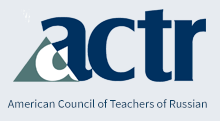Russian Language Journal
Keywords
critical AI, AI literacy, image generation, chatbot, Russian as a foreign language, LLM
Abstract
This paper argues for the integration of critical AI literacy into the Russian as a Foreign Language (RFL) classroom, drawing on recent conversations within the emerging field of critical AI studies. It presents two intermediate-level activities that incorporate generative AI and include learning outcomes aimed at promoting critical AI literacy. These learning outcomes include can-do statements such as "I can identify and discuss stereotypes present in an AI-generated image of a Soviet communal apartment" and "I can evaluate an AI chatbot's Russian-language output for cultural authenticity following a roleplay dialogue." These outcomes encourage students to critically analyze AI-generated content in a Russian-language context. In addition to proposing student learning outcomes to enhance critical AI literacy, this paper addresses the broader practical and ethical challenges of adopting generative AI tools to teach a non-English language. Key questions explored include: What defines critical AI literacy, and why is it essential for students, particularly learners of Russian? How can we balance the risks associated with these models with the benefits they bring to language learners -- and just what are those risks and benefits? How can we teach our students to become critical, autonomous users of AI chatbots rather than passive consumers of AI and ed-tech tools? By addressing these issues, the paper provides actionable insights for RFL educators and contributes to ongoing discussions about the responsible use of AI in education.
Recommended Citation
Pribble, K. (2024). Fostering Critical AI Literacy in the Russian Language Classroom. Russian Language Journal, 74(1). https://doi.org/10.70163/0036-0252.1399


